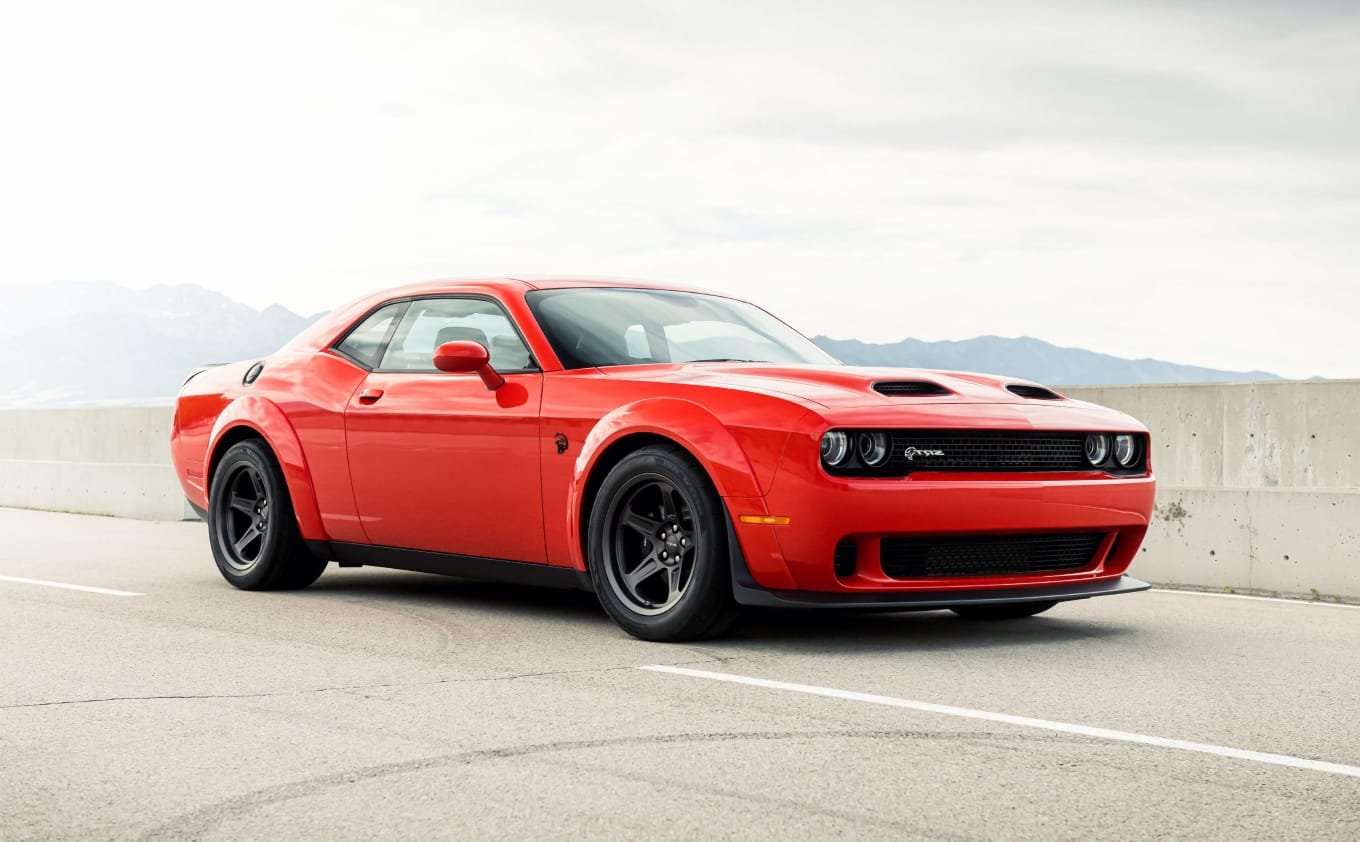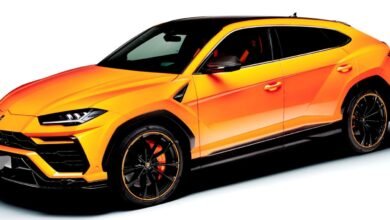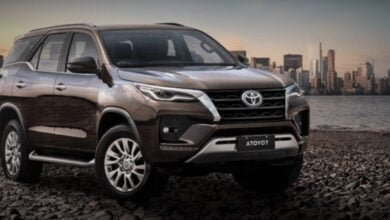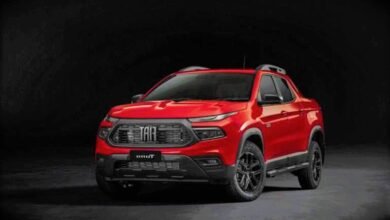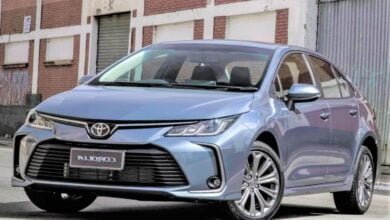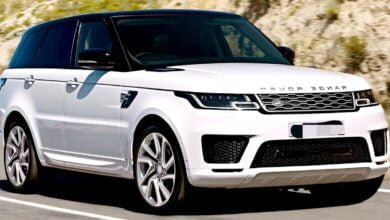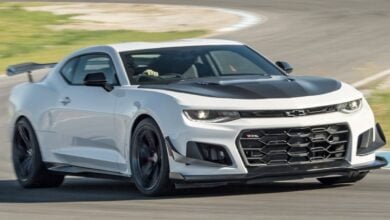2021 Dodge Challenger SRT Hellcat
2021 Dodge Challenger SRT Hellcat
Dodge Challenger The Dodge Challenger SRT Hellcat has perfected Darwin’s theory of evolution, turning into an even more awesome machine year after year. Although the supercharged 6.2-liter V-8 is still at the heart of the full-size Dodge Coupe, the Hellcat engine now comes with three impressive capabilities: 717, 797 and 807 horsepower. The only other muscle car that comes close to those numbers is the 760-hp Ford Shelby Mustang GT500. The two-door Hellcat clearly suffers from a personality disorder, and its wide range of available kits, various looks packages, and a penchant for smoky exhaustion have made it a YouTube star. Its interior quality certainly doesn’t match the lineup’s hefty price tags, but the visual presence of the 2021 Challenger SRT Hellcat and its powerful engines: it’s one of the most powerful machines in the world — and it looks like it is.

What’s new for 2021?
For 2021, a new model from the Challenger Super Stock is essentially a deconstructed version of the drag race-ready SRT Demon that was limited to a one-year production run. The Challenger Super Stock boasts an 807-hp version of the improved Hellcat engine that powers the Redeye. Every SS features a wide range, revised powertrain calibration, and a suspension specifically tuned to improve quarter-mile performance. It also has lightweight equipment that includes all-aluminum Brembo brake callipers and 14.2-inch rotors as well as 18×11-inch wheels wrapped in Nitto-to-dip 315/40R-18 at all four corners. The SS also inherits components found on the Demon, such as the rear tire warm-up line-lock feature and the “Race Cooldown” system that ensures the engine remains at optimum operating temperature.
The wide version handles better and looks cooler, so this is the version we choose. Despite the fact that the SRT Hellcat is all about excess, we wouldn’t opt for the Redeye model that ramps up power to nearly 800 horsepower. In fact, during our testing, the Redeye wasn’t faster than the standard Hellcat because its tires couldn’t put the extra grunt on the ground.
-
Engine, Transmission and Performance Dodge Challenger

The crazy scientists at the Dodge SRT Lab pulled out Samuel L. Jackson’s car and went on the Old Testament with the mighty Hellcat engine. The standard setup makes “only” 717 horsepower, and the version in the Redeye pumps out 797 horsepower. The Super Stock makes use of a more powerful version of the Redeye’s Hellcat engine, generating 807 Thunder Ponies; It also contains gear for drag racing. Paired with the optional eight-speed automatic transmission, the last Challenger SRT Redeye Widebody we tested hit 60 mph in 3.6 seconds and completed the quarter-mile in 11.8 seconds at 125 mph. We’ve driven many Hellcats and – as expected – never had trouble making use of the infinite power supply. However, shooting the wild beast straight and right is an exercise in extreme vehicle control. Each model had a sly roar at startup that developed into a hellish howl under heavy throttle.
The Hellcat’s signature supercharged moan will send shivers down your spine, either out of fear or excitement—and most likely both. These high-performance Challengers may lack stunning track attack, but they are quick as hell in a straight line and handle well enough to take on twisty back roads –
Provided that your heavy right foot knows when to stop. Although the Widebody package adds wider wheels and tires for more stability, it didn’t convince us that it’s ready-to-bend with the Ford Shelby Mustang GT350 or the Chevy Camaro ZL1. The wide-body Dodge is made to the max, but the electric power steering (the regular Hellcat has a hydraulic system) is still slow to react and doesn’t provide the ethereal feedback of its track-focused rivals. Instead, switching between the three steering settings feels more like choosing between different levels of numbness. However, Hellcats make for an amazing speed between corners, so the Brembo’s hard brakes will get you a great workout.
-
Dodge Challenger fuel economy
The 2021 Challenger SRT Hellcat doesn’t gas-power like a rival Sharp — at least, not more so than its rivals. The Environmental Protection Agency estimates it will gain 13 mpg in the city and up to 22 mpg on the highway. The Camaro ZL1 and Shelby GT500 top out at 14/21 mpg city/highway and 12/18 mpg city/highway, respectively. The last Hellcat Challenger we ran on our highway’s 75-mpg fuel economy, which is part of our comprehensive test regimen, was not far from the EPA’s 22-mpg rating.
-
Interior, comfort and cargo
The 2015 Challenger’s interior has been redesigned with a driver-focused design, direct-to-wheel switches, and better materials. The SRT Twins feature a standard leather look, unique badges and gauge colors, and heated and ventilated front seats. Despite its spacious cabin, the plastics still look cheap, and visibility to the rear is poor. Although it had the same trunk volume as the BMW M4, Dodge carried two more bags in its trunk (six) and 15 with the back seat stowed – three more than the GT350. None of the cars we tested were particularly adept at storing small items, but the Challenger does at least have a large center console box, and there’s a handy slot for mounting a smartphone.
-
Information, entertainment and communication

Both models feature the easy-to-use, feature-packed Uconnect infotainment system. These include the navigation, bumpin’ stereo, Apple CarPlay and Android Auto. The standard 8.4-inch touch screen is usefully large and features icons that can be easily identified with your finger. There are volume and adjustment knobs for quick adjustments to the audio system. While navigation responds quickly to inputs with a large on-screen keyboard, the map graphics look old and cartoonish.
-
Dodge Challenger Safety and Driver Assistance Features
Although the Hellcat was not fully crash-tested and underperformed in the test it completed, the full-size coupe is available with a suite of driver-assist technologies. Both models have standard rear parking sensors, but most other safety equipment costs more and not all are available on the Redeye. Key safety features include:
Blind spot monitoring and rear cross traffic alert are available
Forward collision warning available
Available adaptive cruise control
Warranty and maintenance coverage
Challenger coverage is consistent with that of local competitors. Compared to BMW and Porsche, it has less limited protection but has a better powertrain plan.
The limited warranty covers three years or 36000 miles
Powertrain warranty covers five years or 60,000 miles
No free scheduled maintenance
Specifications
2019 Dodge Challenger SRT Hellcat Redeye Widebody
Vehicle Type
Front engine, rear wheel drive, 5-passenger, 2-door coupe
Engine type
Supercharged propulsion and intercooler 16 valves V-8, iron block and aluminum heads, port fuel injection
displacement
376 cu in ، 6166 cc
Energy
797 HP @ 6300 RPM
torque
707 lb-ft @ 4500 rpm
moving in
8-speed automatic with manual transmission mode
chassis
Suspension (F / R): Multi-link / Multi-link
Brakes (F/R): 15.4″ vented discs / 13.8″ vented discs
Tires: Pirelli P Zero PZ4, 305/35ZR-20 (107Y)
Dimensions
Wheelbase: 116.2 inches
Length: 197.5 inches
Width: 78.3 inches
Height: 57.5 inches
Passenger volume: 94 cubic feet
Trunk volume: 16 cubic feet
Empty vehicle weight: 4514 lbs
C/D اختبار Test Results
0 to 60 mph: 3.7 seconds
0 to 100 mph: 7.8 seconds
From to 170 mph: 27.7 seconds
Rolling start, 5 to 60 mph: 4.1 seconds
Top speed, 30-50 mph: 2.4 seconds
Top speed, 50-70 mph: 2.5 seconds
Standing ¼ mile: 11.8 seconds @ 125 mph
Top speed (limited towing, mfr claim): 203 mph
Braking, 70 to 0 mph: 152 ft
Road, glide skateboard 300ft: 0.95g
fuel economy c/d
Observed: 15 mpg
Fuel economy by the Environmental Protection Agency
Pool/city/highway: 16/13/22 mpg
Price as tested
$91,469 (base price: $78,745)
هذه المقالة متاحة أيضًا بـ: العربية (Arabic) 日本語 (Japanese)
